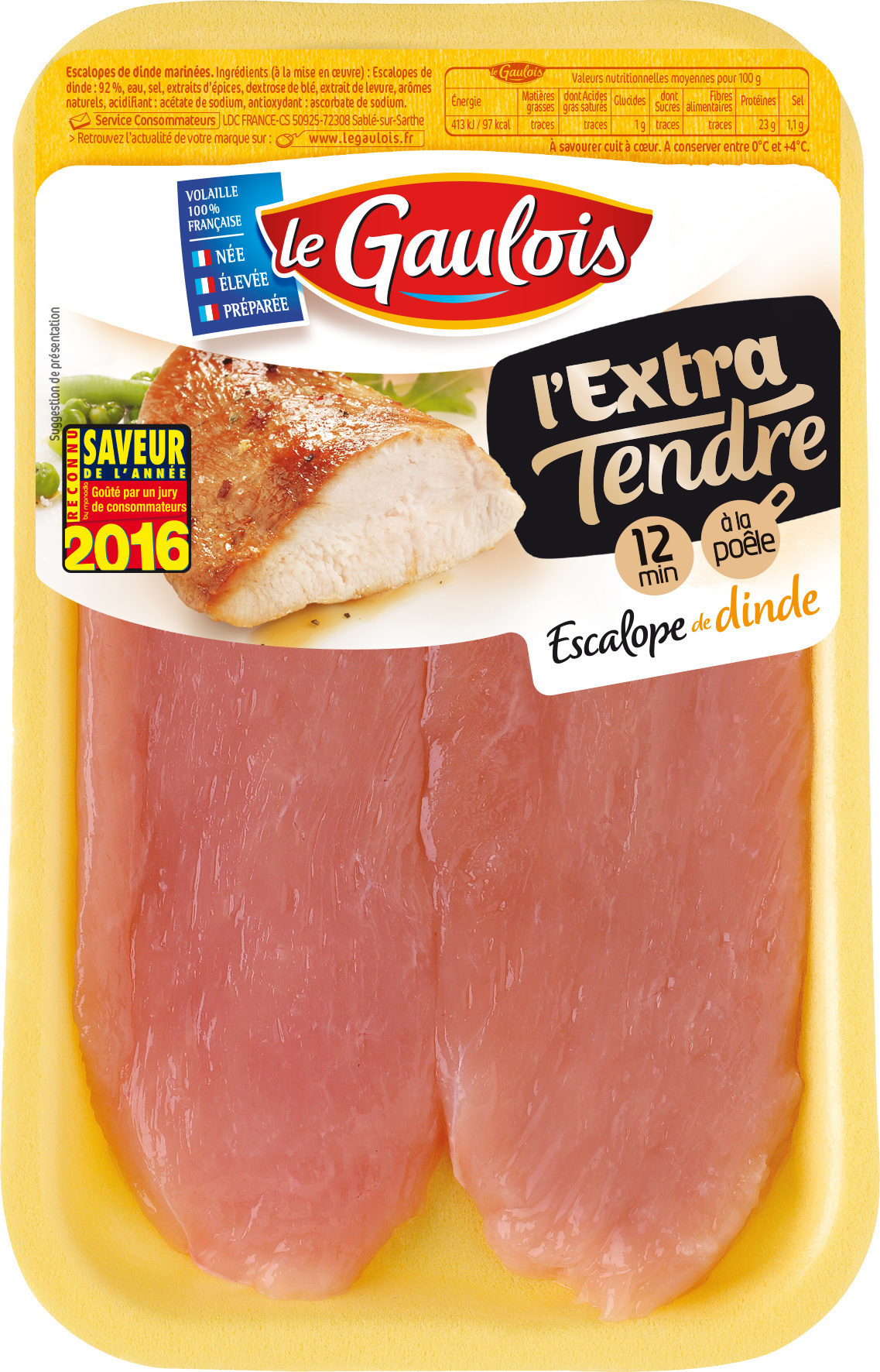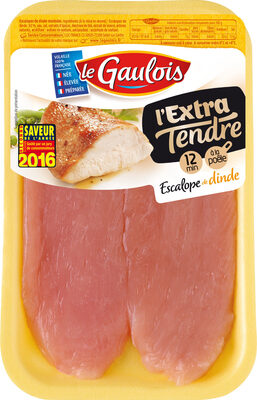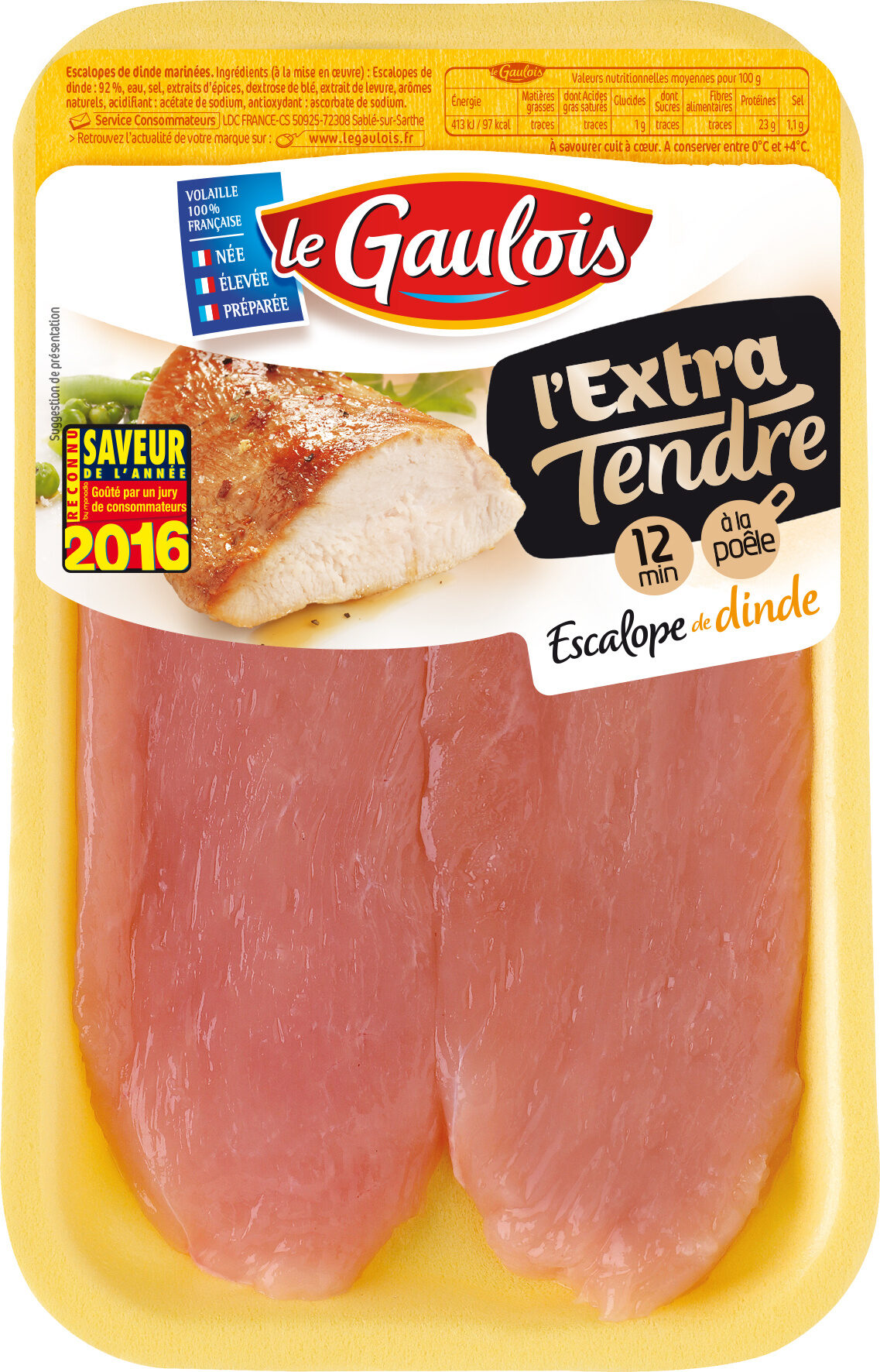Escalope de dinde - L'Extra Tendre - Le Gaulois - 270 g
Some of the data for this product has been provided directly by the manufacturer groupe-ldc.
Barcode: 3266980304973 (EAN / EAN-13)
Quantity: 270 g
Packaging: Fresh
Brands: Le Gaulois
Categories: Meats and their products, Meat preparations, Meats, Poultries, Turkey and its products, Turkeys, Turkey cutlets, Turkey preparations
Labels, certifications, awards: French meat, French poultry, fr:Saveurs de l'Année
Origin of ingredients: France, Unspecified
Producer: LDC DINDE - ZI St Laurent - 72300 Sablé/Sarthe
Traceability code: EMB 72264 - Sablé-sur-Sarthe (Sarthe, France)
Stores: carrefour.fr
Countries where sold: France
Matching with your preferences
Report a problem
Data sources
Product added on by ldc
Last edit of product page on by jim.
Product page also edited by chevalstar, driveoff, fixbot, org-groupe-ldc, packbot, tacite-mass-editor.












